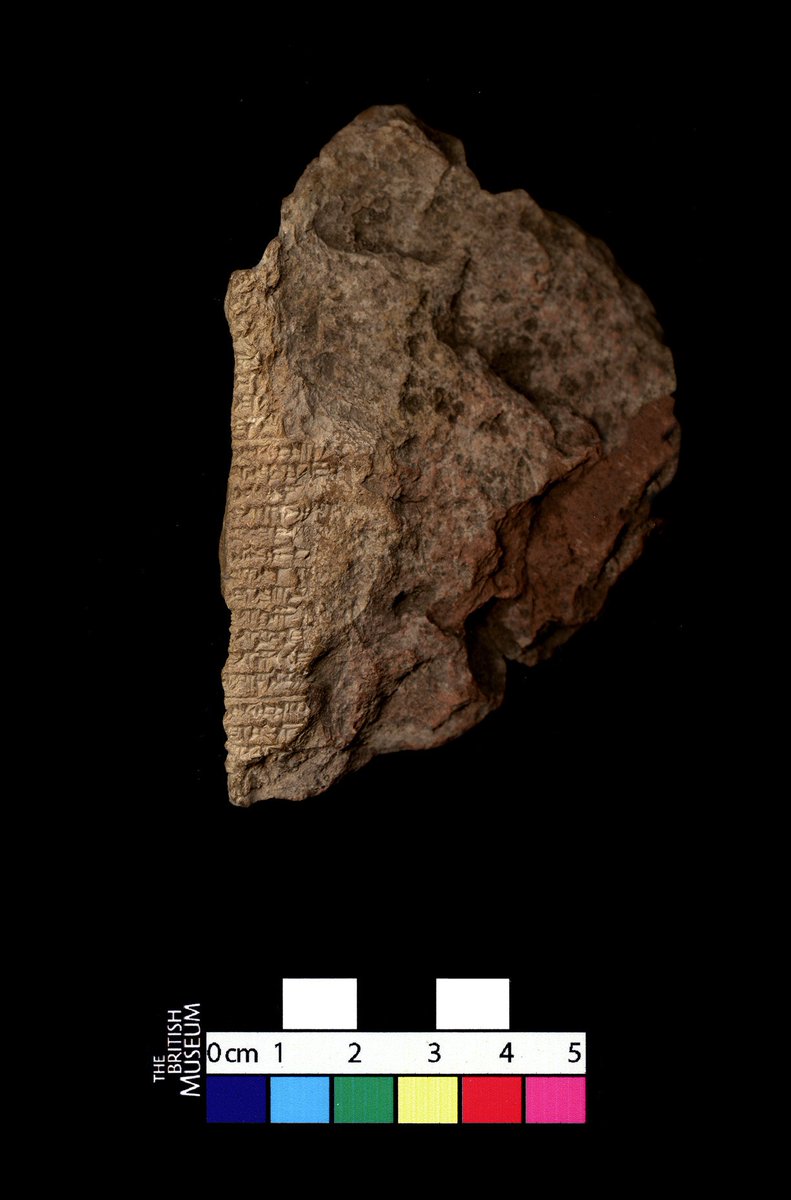The Babylonian "Dialogue of Pessimism" holds a special place in my heart - it& #39;s actually the piece that inspired me to become an Assyriologist to begin with! Today I& #39;m going to talk about why I love this composition - and why I think it& #39;s not so pessimistic after all https://twitter.com/anctxtmodtablet/status/1191444340595400705">https://twitter.com/anctxtmod...
First, the DoP is known from several sources in Babylonia and Assyria - probably written sometime in the early 1st millennium BCE. The composition is a dialogue, but was it performed? Sung? We don& #39;t know but there are several local variants so it probably had some popular appeal
The work takes the form of a dialogue between a capricious master and his obsequious servant. The format is simple:
1. M. wants to Do a Thing
2. S. agrees, tells M. why he should Do the Thing
3. M. decides not to Do a Thing
4. S agrees, tells M. why he shouldn& #39;t Do the Thing
1. M. wants to Do a Thing
2. S. agrees, tells M. why he should Do the Thing
3. M. decides not to Do a Thing
4. S agrees, tells M. why he shouldn& #39;t Do the Thing
So here& #39;s an example - paraphrasing a bit:
"Servant, hitch up my chariot, I want to drive to the palace!"
"Drive, master! The king will honor you!"
"Servant, I don& #39;t want to drive to the palace."
"Don& #39;t drive, master! The king was probably going to send you to war anyway!"
"Servant, hitch up my chariot, I want to drive to the palace!"
"Drive, master! The king will honor you!"
"Servant, I don& #39;t want to drive to the palace."
"Don& #39;t drive, master! The king was probably going to send you to war anyway!"
Another interesting example - sacrifice!
"Servant, I want to sacrifice to my god!"
"Sacrifice, master! You& #39;ll be happy and so very prosperous!"
"No, servant, I won& #39;t sacrifice to my god."
"Don& #39;t sacrifice, master! Can& #39;t have your god following you around like a dog!"
"Servant, I want to sacrifice to my god!"
"Sacrifice, master! You& #39;ll be happy and so very prosperous!"
"No, servant, I won& #39;t sacrifice to my god."
"Don& #39;t sacrifice, master! Can& #39;t have your god following you around like a dog!"
And on they go - the master thinks about eating food, making love, going hunting, making a loan, etc, and rejects it all. And the servant supports him either way!
It gets real toward the end:
"S, I& #39;ll do a good thing for my country."
"Do so! Anyone who does good is brought to the circle of Marduk!"
"S, I won& #39;t do a good thing for my country."
" Then don& #39;t! Look at all the skulls on the ruin mound. Which was a sinner? Which was a saint?"
"S, I& #39;ll do a good thing for my country."
"Do so! Anyone who does good is brought to the circle of Marduk!"
"S, I won& #39;t do a good thing for my country."
" Then don& #39;t! Look at all the skulls on the ruin mound. Which was a sinner? Which was a saint?"
Finally, the master gets dark:
"So servant, what is good? Should I break my neck and yours and throw us into the river?"
The servant responds with an ancient proverb on the limits of human action, one that was first recorded in Sumerian:
"So servant, what is good? Should I break my neck and yours and throw us into the river?"
The servant responds with an ancient proverb on the limits of human action, one that was first recorded in Sumerian:
"Who is tall enough to ascend to the heavens? Who is wide enough to encompass the entire earth?"
The master, capricious as always, decides:
"No, servant - I& #39;m going to kill you first!"
And the servant quips,
"But my master won& #39;t outlive me for three days!"
...and that& #39;s it. That& #39;s the end.
"No, servant - I& #39;m going to kill you first!"
And the servant quips,
"But my master won& #39;t outlive me for three days!"
...and that& #39;s it. That& #39;s the end.
Scholars originally took the DoP as a reflection on the futility of human existence. Sort of like the biblical Ecclesiastes/Qohelet - all is vanity! But there& #39;s a comic aspect to it as well. M is clearly dependant on the S, even though the S is just appeasing M& #39;s whims
But here& #39;s my interpretation: the DoP isn& #39;t about the futility of the world. It& #39;s about its absurdity! Every action can lead to fulfilment, but every action can also lead to disaster. It all ends in death, sure, but surely that& #39;s no reason to quit.
And there are limits to our understanding of what& #39;s going on, sure. But to simply contemplate our navels without engaging with the world is useless. Look at it from the master& #39;s perspective. Sure he hasn& #39;t died quite yet, but by the end of the DoP he& #39;s accomplished nothing!

 Read on Twitter
Read on Twitter


